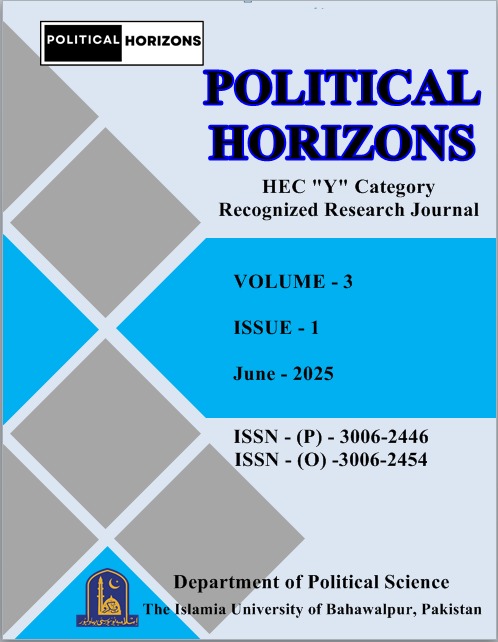Political Will and Climate Change Policy Implementation in Pakistan in the Post-Paris Agreement Era (2015-2023)
Abstract
This paper provides an in-depth investigation into the role of political will in the implementation of climate change policies in Pakistan during the post-Paris Agreement era (2015-2023). With the lens of Kingdon’s Multiple Streams (MSF) as a theoretical framework, the study explores how policy outcomes are being influenced by the interaction of the problem, policy and politics streams. Qualitative methodology is used in this research article and secondary data taken from books, organizational reports, academic journals, and valuable internet sources are analysed. The key findings elicit that Pakistan is highly vulnerable to the climate change as evidenced in 2022 with heinous flood where the policy implementation is obstructed by inconsistent political commitment, fragile inter-ministerial coordination, and financial constraints. Successful initiatives such as the Ten Billion Tree Tsunami Program reveal the potential of aligning political will with actionable solutions. Finally, the study concludes with the recommendations to enhance the strength of leadership, highlight the need to collaborate, mobilise resources, raise public awareness and make national policies aligned with global commitments to promote resilience and sustainable development.
Key words: Climate, Political, Policy, Change, Pakistan.

Downloads
Published
How to Cite
Issue
Section
License
Copyright (c) 2025 Mohammad Ramzan

This work is licensed under a Creative Commons Attribution-NonCommercial 4.0 International License.




